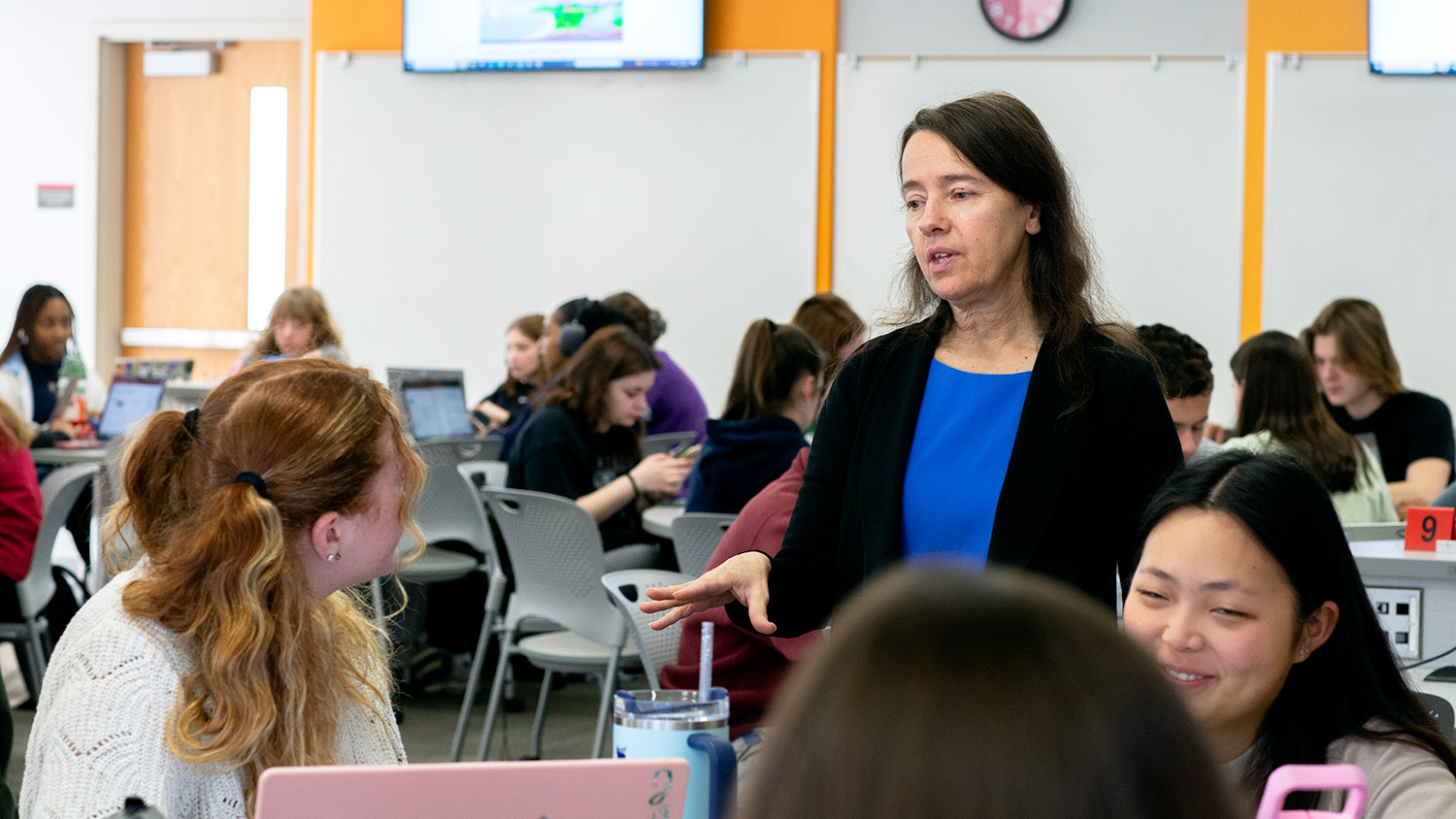Flu-Proof Your Course: Discussions
Coursework in a university depends on a constant dialogue among students and faculty. Your class depends on the interaction and engagement of your students, and getting students involved in class discussions is important. But, if illness makes it impossible for some of your students to attend class sessions, how do you keep them engaged and in touch with you and their fellow students?
The Forum/Discussion feature in one of our Learning Management Systems (LMSs): Moodle, WolfWare Classic, or Blackboard Vista, is an easy way to take course dialogue online. You can add a forum for discussion and students can post responses to each other. Students can add attachments – such as a Word document or image – to discussion board posts and link to resources on the Web.
Faculty are already using the discussion board feature before class sessions. As a “starting point, ” instructors post a topic or question for students to consider and ask students to post their initial thoughts before talking face-to-face in class. The discussion board can also be used as a “follow up” to continue the discussion after the class session or address points that might have been unclear to the students.
If you have a large class and you want the groups you create to work independently, you might consider creating separate groups in Moodle. (Students can only see the group in which they are enrolled). When you want the separate groups to post their work, have them post to the main discussion board so that all students can access that discussion forum. Contact LearnTech to help you set up the separate groups discussion forum and the main discussion forum that all students can be enrolled in.
The following are some tips that faculty can share with their students about discussion board etiquette:
- Always post in a scholarly manner when you are responding to a discussion board post for your course. What you write is how you represent yourself to others. How do you want to be known?
- Avoid spelling, mechanical and grammatical errors. First, write your response to the discussion board question in a word processing program such as MS Word and then spell check the document. Finally, copy and paste your answer to the discussion board. If you are asked to cite references to substantiate your response to the discussion board question, do cite your resources correctly using the preferred citation style identified by your instructor (Chicago, MLA or APA). The NCSU Library has a number of reference sources available: http://www.lib.ncsu.edu/searchcollection/reference-tools/style-guides.html as well as a citation builder http://www.lib.ncsu.edu/lobo2/citationbuilder/citationbuilder.php.
- Avoid using texting acronyms in your scholarly response to the discussion board. Such acronyms are best used in an informal environment but do not reflect academic writing. Also as a reminder, several of the students in your distance courses may be from other countries and may be unfamiliar with the acronyms you use and this informal approach to writing.
- Be sure to represent your own ideas when you post. The following is a tutorial that will outline copyright infringement, what plagiarism is, and how plagiarism is viewed at NCSU. http://www.lib.ncsu.edu/dspc/tutorial/plagiarism/index.html
- Follow rules of netiquette when posting to the discussion board. Virginia Shea outlines some of the Core Rules of Netiquette in an excerpt from her book Netiquette
If your students engage in ongoing research or a series of readings during your course, you might also investigate use of the Wolfblogs. Students can use the tool to make posts or comment on other posts on the blog. A blog is structured so that the most current posts are most visible and easy to access, making it a good choice for situations where topics being discussed change on a frequent basis.
Depending on your class and the situations of you and your students, you may prefer to use Elluminate to provide real-time discussion with voice and shared visuals.
For support in learning about and setting up any of these tools to support your class, please contact DELTA’s LearnTech service at learntech@ncsu.edu or call 919.513.7094; or request a consultation using our online request form.
- Categories:


